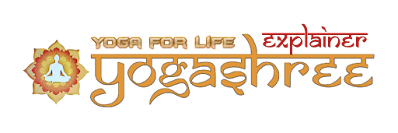What's the difference between the several types of yoga, each the popular variety, and the not-so-popular? All offer great health benefits, below are listed some of the most well-known types of yoga.
Yoga is a process of unification. This unification is multifaceted. In a single dimension, it's a unification of the various systems that exist within the human being including the emotional, physical, mental, and spiritual methods.
Exploring the Different Types of Yoga
Find out which type of yoga, is suited to your body level. A vital factor that has to be addressed, before starting any type of yoga.
There isn't any right or wrong system of yoga, each possesses its own distinct characteristics. That accommodates the wants of varied characteristics and personalities that exist amongst human beings.
Every system is designed to accommodate a unique character type, and yoga has developed right into a reaching system that may be practiced by anybody who's taken with pursuing a spiritual life.
Whereas there are many types of modern practices of yoga that were defined by various teachers. The methods we shall be discussing are conventional methods that were in existence for many generations.
Find out Which Type Of Yoga Is Best For You
Different Types of Yoga
- Hatha Yoga/ Bikram Yoga
- Raja Yoga/ Ashtanga Yoga
- Kundalini Yoga
- Bhakti Yoga
- Karma Yoga
- Gyana Yoga
- Mantra Yoga
- Hatha Yoga
- Raja Yoga
- Yama- Code of conduct and self-restraint.
- Niyama- Religious observances, self-discipline.
- Asana- Formation of a steady seat for mind and body.
- Pranayama- Regulation of breath.
- Pratyahara- Withdrawal of the sensory organs of perception from the external surroundings together with all 5 senses (six if you happen to include the mind).
- Dharana- Focus.
- Dhyana- Meditation.
- Samadhi- Self-realization.
- Kundalini Yoga
Kundalini Yoga: Kundalini Yoga originated from the practice of tantra yoga. Tantra yoga is believed to be one of the oldest types of spirituality.
One of the key components of 'Tantra Yoga' is the incorporation of kundalini which is taken into account to be the primordial pressure existing inside every human being.
The follow of Kundalini yoga was formed to control and harness the potential of the Kundalini energy throughout the physique.
Unlike the other systems of yoga, kundalini yoga is an extremely unstable practice of yoga as the release of Kundalini energy can result in extreme psychological and physical disorders if not managed with the correct method.
- Bhakti Yoga
Bhakti Yoga: Bhakti Yoga is recognized as devotional yoga, where all people focus on self-surrender and development. This can be a very spiritual type of yoga.
In bhakti-yoga, a strong sense of faith is required as one is expected to submit themselves to the Divine through a process of self-surrendering.
- Karma Yoga
Karma Yoga: Karma Yoga is an aspect of human life that's responsible for our thoughts, emotions, and actions. It's believed in Karma keeps the cycle of rebirth in motion as past actions and events force us to take another life in the world.
Once accumulated Karmic benefit is balanced or destroyed then the cycle of birth and death is stopped and the spirit returns to its origins within the divine.
- Gyana Yoga
Gyana Yoga: The practice of Gyana yoga is well understood through the two words 'Gyana' and 'Yoga' which together mean 'Union through Wisdom'.
The practice of Gyana yoga normally approaches things through the mind and rational deduction. The methods used in Gyana yoga are concerned with a process of deduction in which one observes all aspects of life.
- Mantra Yoga
Mantra Yoga: Mantra Yoga is known as the yoga of the potent - targets liberation through intellectual or verbal repetition of noises and sounds. With this yoga, you may encounter the classic "om" chant.
Which is the easiest Yoga for beginners?
So in summary there are many types of yoga, each with many benefits. Every type will improve your health, but the way that is achieved may dramatically vary.
Every system of yoga gives its own distinctive benefits that evolve from the practice and subsequently can be practiced without the intention of achieving self-realization.
Whereas the ultimate goal of yoga is liberation, there are many advantages of the practice that naturally happen because the body, mind, and energy throughout the human being are purified.
















Hi! This is my first comment here so I just wanted to give a quick shout out and say I genuinely enjoy reading your blog posts. Can you recommend any other Food Guest Post blogs that go over the same topics? Thanks a ton!
ReplyDelete